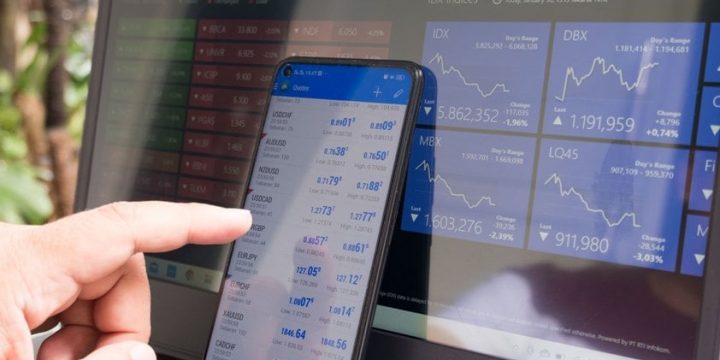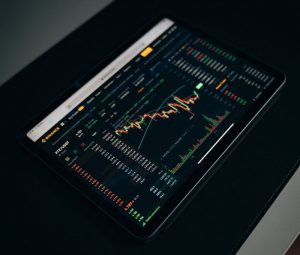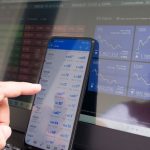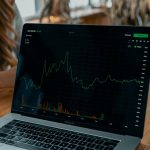Random Markets and Cyclical Reality

There is something I see quite often in the circles of trading, and it is the example flipping coins and random market behavior, and the fact that trading is not very different from that activity or lottery.
That fact is true in some way, at least if we are talking about short-term trading, mostly day trading, let alone “hour” or “minute trading”, which are so popular nowadays (well, they have always been actually) for instance, using binary options.
Short term trading randomness
When we enter the territory of short-term trading we are dominated by emotions and gaming addiction behavior; a territory where the random pattern is king.
When we try to trade milliseconds trades, we are effectively trading randomly in a perfect way. The probability of a price to rise or go down in that millisecond is the same.
When we try trading “minute, hour or day trading”, the random behavior does not disappear completely, and the probability of being right after 1.000 bets is nearly 50%.
There is no “edge” here, and the promoters of short-term trading know this very well. They will never stop praising the wonders of day trading.
A different situation occurs when we increase the period in which we hold our trades. The “day trading” period is too small for us to get an advantage in most cases.
There are perhaps, some markets and some times when we can have a small edge by doing day trading activities, but the day trade will have to be an all-day long trade, keeping our winning till the close (you know, letting our profits run).
Best market for day trading
For instance, perhaps, the best market to do day trading, or something similar to it, is the stock market since we can find the best long term trends there; a bullish trend, of course. In these markets there is a way we can “know” if the markets are trending up or down. That way is volatility.
For instance, using the VIX (volatility Index) and being basically long most of the time, when it is below certain level, and short when it is higher than a certain level (1). But, the best thing for a case like that, is to do a sort of “week trading”. Much better than day trading. We just let our profits run, and close the position by Friday, for example. If the trade goes wrong, we are out in the same day in most cases. If we are right, we just let it run.
The further we get away from day trading, the further we get away from random behavior, and the closer we get to the cyclical concept of this World.
A cyclical concept perfectly represented by the Ouruboros serpent.
Praxeology and random markets
When we get closer to “week trading”, “month trading” or “year trading”, we can see more clearly the choices this cyclic reality gives us, which reflects the famous economic and societal cycles well documented by sociologists, philosophers and economists like Kondratiev, Schumpeter, Mises, Elliot, Guénon, Spengler, et cetera.
Those processes are not random, but on the contrary they get very deep into human sociology, and as Mises and “Austrians” would say, praxeology, the science of human action.
Human action is not random, but responds to social realities quite predictable and cyclical. Day follows night, cold follows heat, pessimism follows optimism and crashes follow bubbles.
The bigger the bubble is the bigger the crash that follows.
When there is a big disequilibrium in a society, or between a two societies, the probability that there will be a reaction is bigger.
Reactions do not happen randomly, but for fundamental reasons, which we could consider almost physical.
In this regard, human behavior becomes more or less predictable and, therefore, not random.
We cannot predict and be right more than 50% of times when we flip coins, but we know that when a government starts introducing price controls, prices in that society will rise in the near future. That, evidently, is not random.
Cyclical nature of markets and the economy
Something similar occurs in all markets, and some speculators, denominated contrarians, like to bet against the masses in the long-term.
For instance, a currency speculator knows that the South African Rand, the Turkish Lira, The Mexican Peso or the Malawi Kwacha, are going to depreciate against the dollar, yen or Swiss franc in the future.
Maybe those currencies have medium term bull markets against the majors, but in the long run, they know that those exotic currencies will depreciate massively, some more than others. There is nothing random there, but the knowledge of economic and societal conditions.
Speculators know that countries in the “second” and third World tend not to be too stable, so to speak. Speculators or intelligent savers in South Africa are not putting their savings in the Rand.
They know that some day it will go straight to hell, even against the dollar, which is not a stable currency by itself anyway.
Also, no one in his right mind will invest a dime in Venezuela. Everybody knows that there is a big chance you are not going to get back your money.
Those examples are extreme, but it does not mean that stock markets like the American or the Spanish do not have cyclical component.
For instance, knowing that society and the State are full of debt nowadays, it is very likely that the Spanish Stock Market will not yield big returns in the coming ten years. The only way it can go up a lot is by hyperinflating the currency, with the IBEX going up 50% per year or month, but with the currency depreciating 70.
In this regard, a long-term speculator knows that the IBEX has to fall significantly, whether in “German euros”, or in terms of gold.
The American case is quite similar, but at least they have some oil and the Sixth Fleet. Anyhow, it does not mean that we should short the IBEX right now because it can be bullish for a time and we do not know the moment it will start tanking.
The day the big bear market comes, an old school speculator will be short.
The financial bets that last minutes, dices, flipping coins, state lottery, and similar things belong to random markets.
The long-term moves, and even medium-term (decreasing as we get close to “day trading”) belong to the cyclical reality of the markets.
Cyclical end of Capitalism?
And, by the way, the great bull market in stocks for the last 300 years in the West, also belongs to a cyclical reality (although it appears to be an eternal bull market), which means that some day it will end. That day may well be the last day of the Capitalistic Era, and the beginning of the Socialistic one, which will not last too long due to its metaphysical impossibility, not to mention the physical, something that Von Mises knew very well (at least in the “physical” side).
Then, when will the Socialistic Era starts?
Who knows?
- Though we had better not trade the short side anyway. It is difficult to win in the long run in the stock markets by being short.





